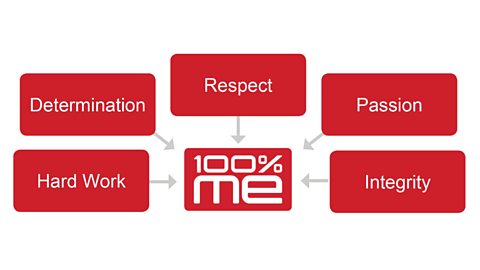Performance-enhancing drugs and anti-doping
A description of some of the different drugs that are banned in sport

A performance-enhancing drug is any substance taken by a sportsperson to improve the standard of their performance. The use of performance-enhancing drugs (PEDs) is currently one of the biggest issues in modern sport. Athletes such as Lance Armstrong (cyclist banned for using steroids and blood boosting drugs) and Justin Gatlin (sprinter banned for stimulant and steroid use) both damaged the reputation and credibility of their respective sports. Athletes may choose to use illegal PEDs for different reasons and with varying risks.
Reasons for taking performance-enhancing drugs include:
- pressure to succeed or win at any cost
- pressure to succeed as a nation
- pressure from the media and the public to be successful
- pressure to be successful in order to gain sponsorship
- pressure to succeed for financial reward
- sport is a short career and performers need to make as much money as possible to set themselves up for life
- improve physical condition (speed and strength) to gain an advantage
- boost confidence
- reduce recovery time from injury
- the belief that other competitors are taking drugs, so without drugs they will not be able to compete equally
Here are three types of performance-enhancing drugs and their effects on performance:
Anabolic steroids - these illegal drugs have been widely used to cheat in sport over the past fifty years. They are the artificial (man-made) form of the male hormone testosterone. They help the athlete to make rapid increases in strength by promoting bone growth and developing muscle mass. They also aid recovery and repair of muscle fibres after high intensity movements such as sprints which allows performers to train harder and more often. Steroids are typically used as a training drug in sports such as weight lifting, body building, sprinting and other athletic events requiring muscle mass. However, steroids are thought to cause severe mood swings when used in large quantities and may cause heart disease in some people. In males there is also the threat of testicular atrophy (shrinking testicles), and in females, an increase in body and facial hair.
Stimulants - these banned substances, such as caffeine, cocaine, amphetamines and ephedrine, can increase alertness and competitiveness. They improve performance in games by reducing reaction time, speeding up reflexes and reducing feelings of fatigue. However, they are addictive and cause high blood pressure, anxiety and aggression and because they mask fatigue and pain, injuries are made worse and high levels of stress (sometimes fatal) are placed on the body systems. Stimulants are used in team contact sports such as ice hockey and American football and sports which require quick reaction times such as baseball.
Beta blockers - these banned drugs help a performer to keep calm by blocking the effect of the hormone adrenaline. This reduces heart rate, blood pressure and even anxiety and helps prevent the hands from shaking. Performers in target sports such as archery and shooting would stand to benefit most from these, as well as gymnasts and golfers. Side effects include dizziness, nausea and diarrhoea, depression and impotence.
Anti-doping
Doping in sport means to take illegal or performance-enhancing drugs such as anabolic steroids. Doping undermines fairness and puts athletes' health at risk.
While there are strict measures to tackle doping in sport, it is the responsibility of every athlete to make sure they are dope-free. Individuals have to take personal responsibility for every substance that enters their body. Ultimately, anti-doping depends on good sportsmanship.

The UK Anti-Doping agency promotes 100% Me. This is about being a true athlete where your performance is due to hard work, determination and talent. 100% Me supports and educates all athletes from beginners to elite performers. It is based on five values.

Many of the UK's top athletes support 100% Me and champion clean sport.